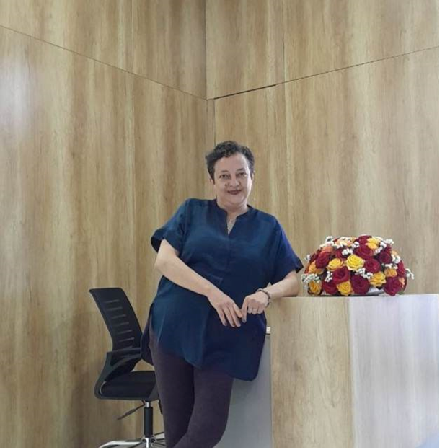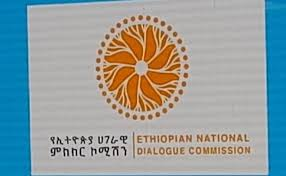
She was raised in a vibrant household with over thirty family members, where they cherished the traditions of Ethiopia, sharing their blessings and savoring life`s abundant offerings. Although her mother was a citizen of England, Roman was nurtured in a manner that upheld and honored Ethiopian culture and traditions.
Her mother embodied remarkable motherhood and leadership, guiding her children towards success, while her father, Dr. Tewolde Berhan Gebre Egzaabheer, hailed from a rural village named “Adi-Islam” near Adwa city in the Tigray region.
After obtaining his bachelor’s degree from Addis Ababa University in 1963, he pursued further education, ultimately earning his master’s and doctorate degrees from the University of Wales.
Dr. Tewolde held significant positions, including serving as the Dean of the Science Faculty at Addis Ababa University and as the president of Asmara University from 19783 to 1991.
Additionally, he contributed to his country’s governance by serving as the Deputy Minister of the Ministry of Culture in Addis Ababa and later as the Director General of the Environmental Protection Authority, where he made a lasting impact.
Dr. Tewolde and Sue Edwards, an English couple, met while teaching at Addis Ababa University, embodying a love that transcends race and color, cherishing their shared humanity and embracing tradition. Their daughter, Roman Tewolde Berhan Gebre Egzaabher, is a beacon of hope, known for her altruism and unwavering determination.
Sue Edwards, renowned for her tenure as a teacher at Addis Ababa University, extended her passion to charitable work, notably founding a charitable organization, which empowered farmers with sustainable natural fertilization techniques by improving production and productivity.
Roman fondly reminisces about her upbringing, characterized by love and equality, where household chores were mandatory for all children, fostering a harmonious environment devoid of differences.
Sue Edwards, having embraced Ethiopia and its traditions, embodies the essence of an Ethiopian mother, exemplified by her warm hospitality to her husband’s family in the Ethiopian tradition.
Roman, deeply influenced by her mother’s tireless nature, reflects on the nurturing environment they shared, where everyone, regardless of relation, grew up as equals within their family, under the care of their beloved nanny, Ata.
Born in Addis Ababa fifty years ago, Roman’s early education took place at Addis Ababa Hizbawi Serawit and Meskaye Hizuunan primary schools until the age of eleven.
Following her father’s appointment as the president of Asmara University, Roman was able to move Asmara. However, due to the unrest in Asmara she returned back to Addis Ababa and pursues her education. She excelled in her studies and obtained her first degree in economics from Addis Ababa University before relocating to England, her mother’s native country.
Growing up in an intellectually stimulating environment, Roman developed a strong passion for books and social interaction, which significantly contributed to her educational achievements and personal growth.
In England, she pursued a Master’s in Business Administration and delved into editing to complement her love for writing and publishing. Additionally, she honed her professional skills through studies in secretarial science and various computer courses.
Following her education, Roman held administrative positions in England, gaining experience in case management and various administrative tasks. A decade ago, Roman returned to Ethiopia and assumed the role of a school administrator, also contributing as a senior official in charity organizations until the onset of the Covid-19 pandemic.
During the Covid-19 pandemic, I revitalized neglected poetry books and delved into writing children’s literature and composing English poems for publication. Additionally, I devoted three years to the publication and distribution of works by other authors, aligning with my enduring passion for books and commitment to promoting high-quality works by young writers.
Moreover, I am currently employed at the Institute for Women’s Safety and Peace, a non-governmental organization founded by prominent ambassadors, dedicated to advocating and ensuring peace and security for women.
Reflecting on my life philosophy, I firmly believe in perseverance as the cornerstone of success, viewing it as an ongoing journey of surmounting challenges. I encourage Ethiopian women to embrace diverse opportunities while fulfilling their essential role in nurturing and raising children. I emphasize the importance of women not remaining idle, asserting that it signifies a relinquishment of their rights.
Furthermore, I challenge the notion of women’s inherent inferiority over men, advocating for collaboration and mutual understanding instead of engaging in a competition for equality. I emphasize the significance of recognizing and respecting individual differences, fostering a harmonious coexistence.
In her assessment of societal norms, Roman expresses surprise at the idea that men not participating in kitchen activities is as astonishing as suggesting that women are incapable of driving. She advocates for acknowledging the fundamental equality of all individuals based on their shared humanity as a means to avoid unnecessary arguments.
Furthermore, she articulates her commitment to dedicating the rest of her life to activities that foster personal and collective success. Roman emphasizes the importance of Ethiopian women enhancing their financial independence, expanding their knowledge, and strengthening their self-confidence, not only for their own benefit but also for the well-being of their children, families, and the wider community.
As an Ethiopian woman, Roman shares that during her time in England, her mother’s native country, she never felt like anything other than a native, dispelling the sense of being an immigrant. Reflecting on her experiences in England, she acknowledges feeling somewhat overlooked.
Roman also remarks on the pronounced conservatism of Ethiopian society, particularly addressing the challenges posed by the tightly-knit nature of Ethiopian culture for women. She contrasts this with the more equitable treatment of men and women in British society. Additionally, she emphasizes the need for societal support for young girls facing pregnancy and stresses the absence of institutional mechanisms to address their mistakes, calling for collective action to tackle these issues.
BY LEULSEGED WORKU
THE ETHIOPIAN HERALD THURSDAY 14 DECEMBER 2023





